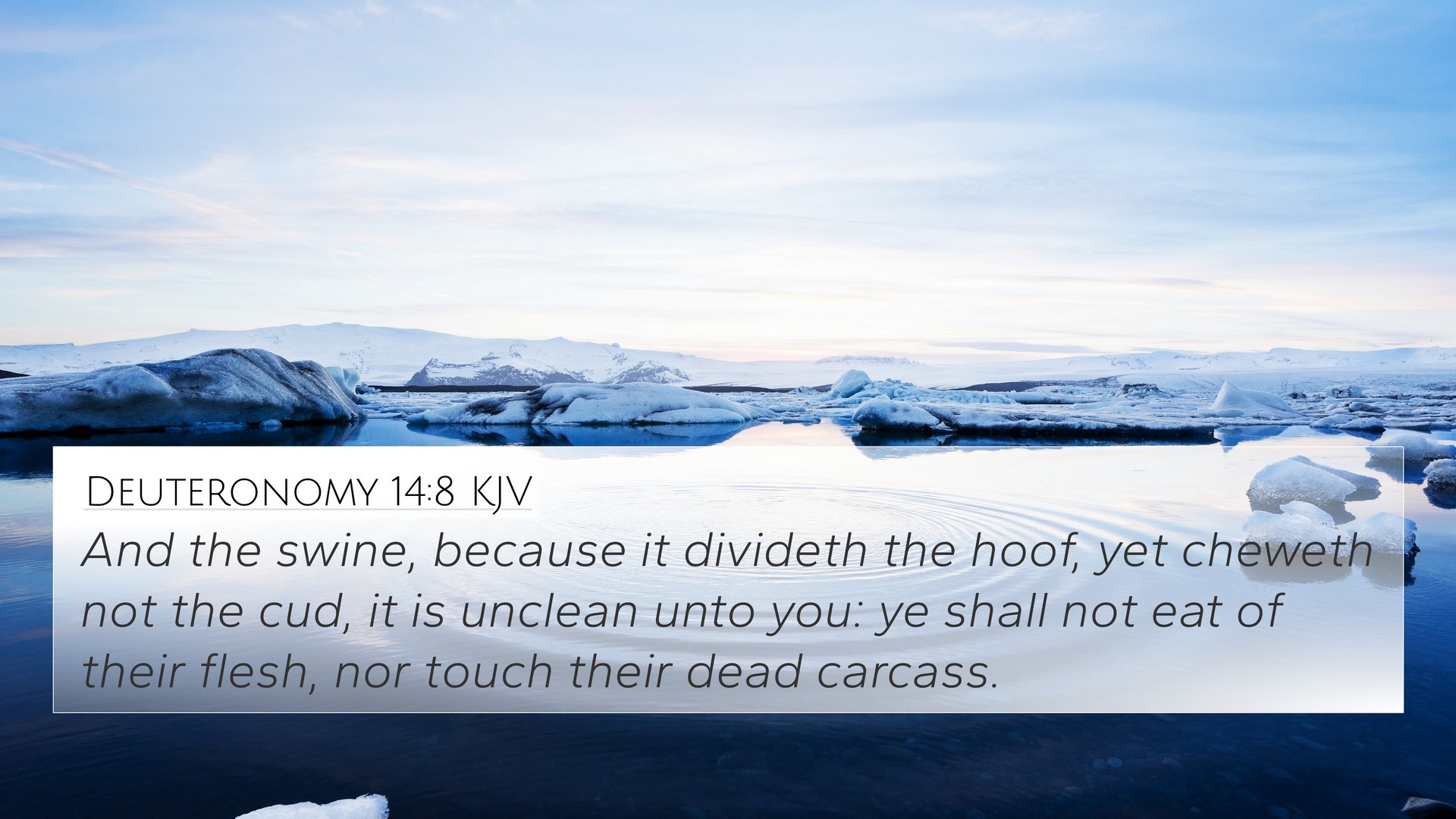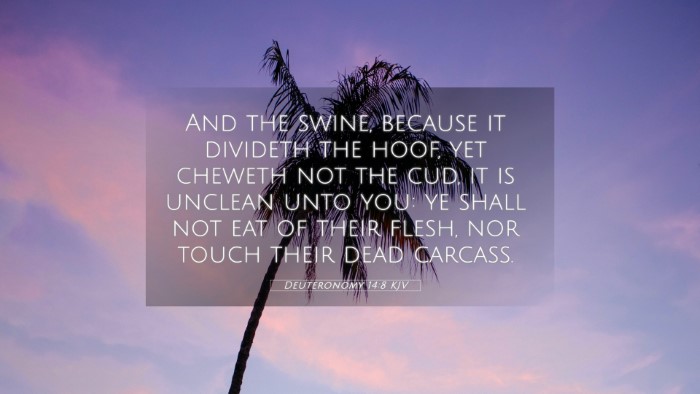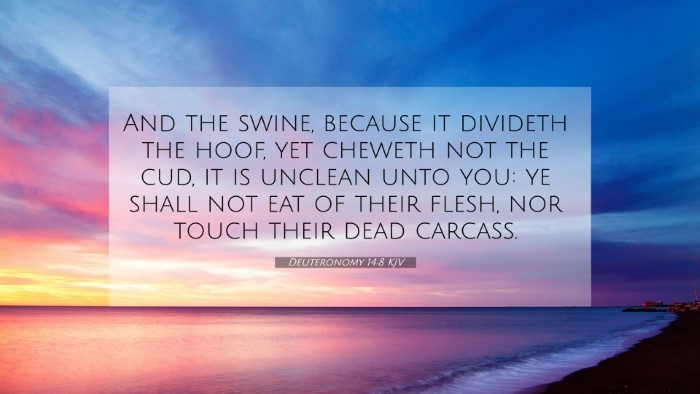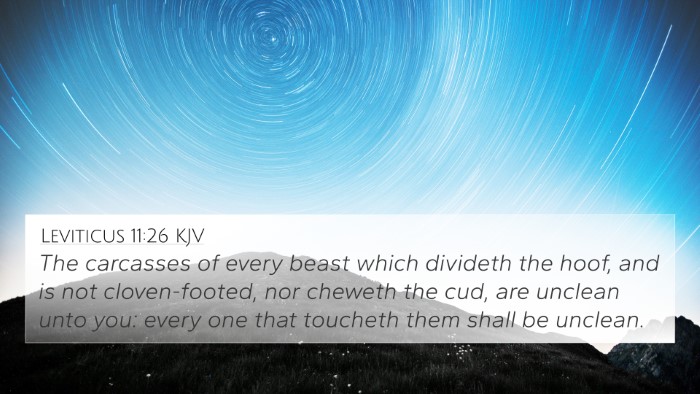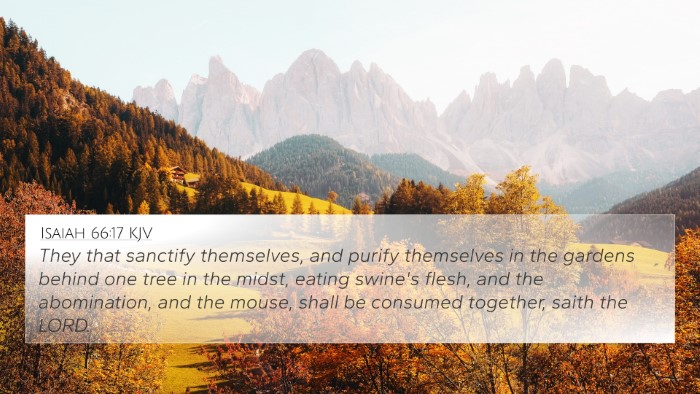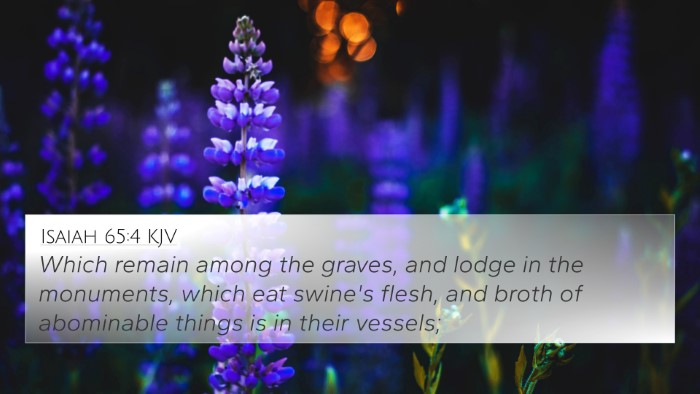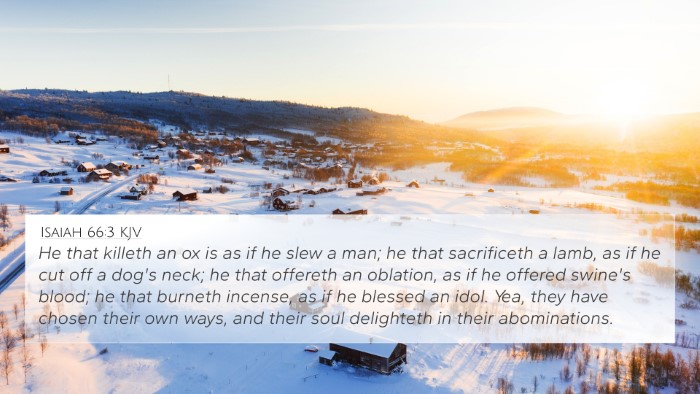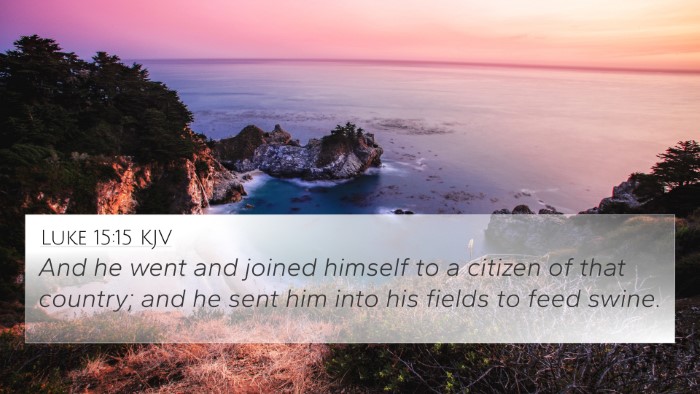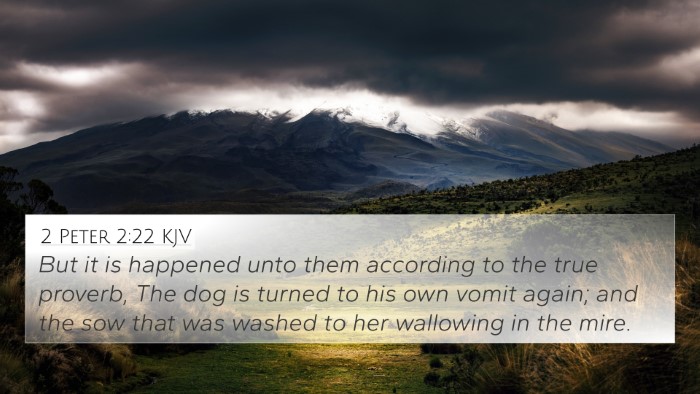Understanding Deuteronomy 14:8
Deuteronomy 14:8 states, "And the swine, because it divideth the hoof, yet cheweth not the cud, it is unclean unto you: ye shall not eat of their flesh, nor touch their dead carcase.
Verse Context and Overview
This verse is part of the larger section in Deuteronomy where God gives dietary laws to the Israelites. These laws are intended to set Israel apart from other nations and to promote holiness among God's chosen people.
Commentary Insights
The following insights are gathered from public domain commentaries to help understand the implications of Deuteronomy 14:8:
-
Matthew Henry:
In his commentary, Henry highlights that the distinction of clean and unclean animals serves as a reminder of the necessity for holiness and separation from impurity. He notes that even in the physical diet, there is a spiritual principle at play that encourages the people to align themselves with God’s will.
-
Albert Barnes:
Barnes expands on the practical implications of dietary laws, pointing out that abstaining from certain animals like swine is not merely a health matter but symbolizes obedience to God. This act of obedience illustrates a deep-rooted reverence for God’s commandments.
-
Adam Clarke:
Clarke delves into the reasons behind the classification of clean and unclean animals, emphasizing that for the Israelites, these laws were essential for maintaining ritual purity. He suggests that the consumption of unclean animals could lead to spiritual contamination.
Theological Significance
The laws regarding clean and unclean animals provide crucial insight into God's character and His desire for His people to live in accordance with His standards. They serve as a basis for understanding the broader theme of purity in the Bible.
Cross-References and Inter-Biblical Dialogue
Thematic connections can be drawn between Deuteronomy 14:8 and various other Biblical texts that touch on the aspects of cleanliness, holiness, and dietary laws:
- Leviticus 11:7-8: Similar content regarding the prohibition of swine, highlighting dietary restrictions.
- Isaiah 65:4: A prophetic warning against engaging in practices deemed unclean.
- Acts 10:14: Peter's vision and the declaration of foods being made clean point to the transition within New Testament teachings.
- 1 Timothy 4:4-5: A further reflection on the notion that all created things are good, if received with thanksgiving.
- Mark 7:18-19: Jesus expands on eating habits and the significance of what truly defiles a person.
- Romans 14:14: Paul's discussion of food and conscience highlights the debate over clean and unclean foods.
- Hebrews 10:1: The law serves as a shadow of the good things to come, implying a deeper understanding of purification through Christ.
Interpretative Connections and Comparative Analysis
Analyzing Deuteronomy 14:8 in light of other Scriptures reveals a rich tapestry of themes concerning purity, holiness, and moral conduct:
-
Holiness and Separation:
The repeated emphasis on holiness throughout both the Old and New Testaments indicates God's unchanging nature and His expectations for His people to be set apart.
-
Transition in Dietary Laws:
Understanding Acts 10 explains the transition that occurred with the advent of Christ, and how these dietary laws were fulfilled and transformed in the New Covenant.
-
Jesus and Cleanliness:
Jesus’ teachings challenged the existing perceptions of cleanliness, stressing that inner purity is far more important than outward adherence to dietary rules.
-
Community and Conscience:
Paul’s letters further address the issue of dietary practices within the Christian community, encouraging believers to consider the conscience of others, which ties back to the Old Testament understanding of being mindful of purity.
Tools for Bible Cross-Referencing
For individuals interested in exploring cross-references, various tools can assist in navigating the complexity of Biblical texts:
- Bible Concordances
- Bible Cross-Reference Guides
- Comprehensive Bible Reference Resources
- Cross-Referencing Bible Study Methods
Conclusion
Deuteronomy 14:8 serves as a critical piece within the foundation of Israel’s identity and covenant relationship with God. Understanding this verse requires engagement with broader themes of purity and holiness, as well as a consideration of New Testament reflections on these ancient laws. Engaging in comparative Bible verse analysis and cross-referencing can deepen one’s understanding and appreciation of the Scripture as a whole.
